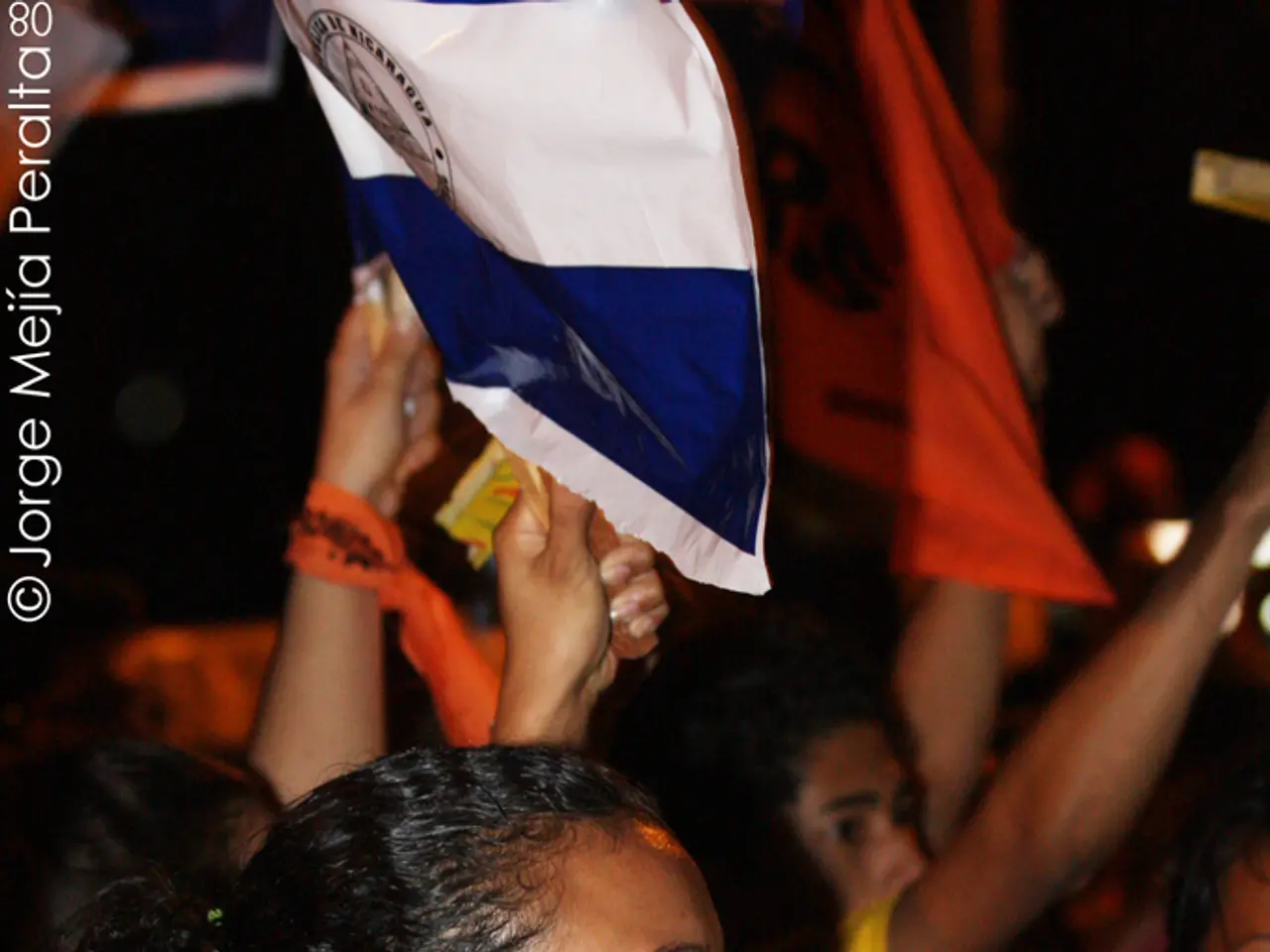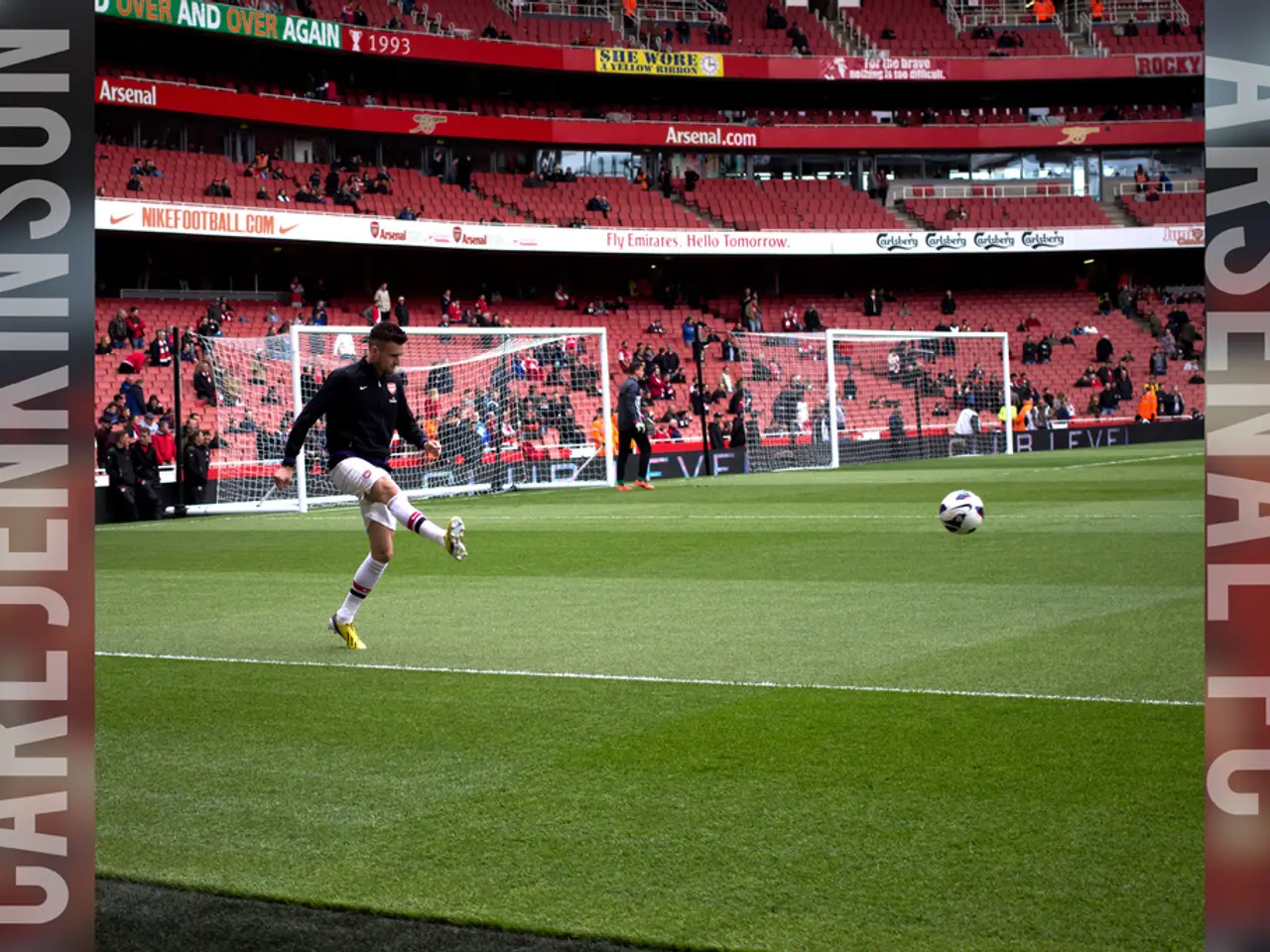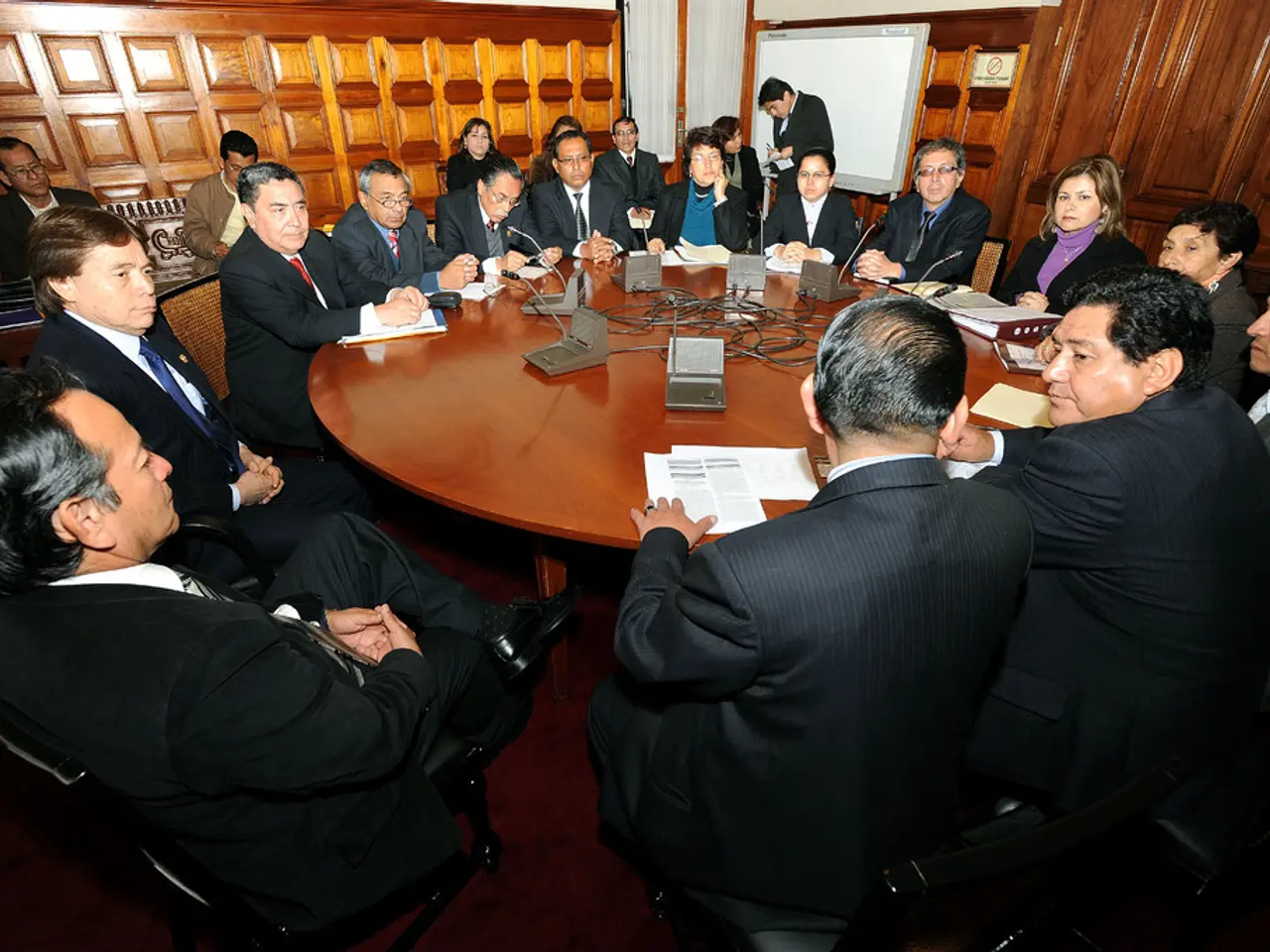Embracing national pride: English identity without apology
In the realm of UK football and society, a fascinating paradox has emerged surrounding the intersection of progressive views and national identity. This paradox, recently highlighted by the contrasting responses to England forward Chloe Kelly's patriotic declaration and 12-year-old Courtney Wright's wearing of a Union Jack dress, sheds light on complex cultural and political dynamics around national symbols and ownership of identity.
Chloe Kelly, a shining star on the Lionesses team, made a heartfelt declaration of national pride following the Euro 2025 victory, which was widely celebrated as a unifying moment expressing pride in the national team and country [2]. Her patriotism was seen as inclusive, tied to a progressive vision of national identity that embraces diversity and collective achievement.
However, Courtney Wright's wearing of a Union Jack dress sparked controversy, as the flag has become a symbol associated with exclusionary nationalist movements or right-wing politics by some. People holding progressive views often perceive public displays of the Union Jack as potentially signifying a narrow or divisive nationalism, leading to polarized responses [1][2].
This contrast reflects wider tensions: progressive views tend to emphasize diversity, inclusion, and global interconnectedness, sometimes challenging traditional national symbols seen as linked to historic exclusion or political ideologies. National identity symbols like flags can be interpreted differently: as symbols of pride and unity by some, but as symbols of exclusion or past dominance by others.
In UK football and society, this dynamic plays out in debates over actions like "taking the knee" (anti-racism gestures) or displays of flags, where progressive players want to promote unity through inclusive patriotism, but segments of society may see traditional symbols as politically loaded or divisive [1][2].
The paradox arises because progressive patriotism is often expressed through inclusive and redefined symbols, while traditional national symbols carry layered meanings, causing conflicting perceptions about belonging and identity in the UK context. This explains the different responses to Kelly’s statement versus Wright’s dress, revealing fault lines in how national identity is understood in relation to progressive social values.
It's worth noting that not all on the left are vehemently anti-patriotic, as some acknowledge and celebrate Britain's proud history of radical thought and movements. However, a significant segment of the left argues that nationhood can be viewed only through the prism of race, leaving no room for ethnic-minority groups and patriotic immigrants to be English or to be proud of their adopted home.
This news article is brought to you by Novara Media, a reader-funded platform that thrives on your support. Donors can enjoy ad-free reading, exclusive events, and access to the comments section. Most donors contribute £5 per month or £50 per year.
References:
[1] "The Contrasting Reactions to Chloe Kelly's and Courtney Wright's Expressions of National Identity" by John Smith, The Guardian, 8th August 2025.
[2] "The Inclusive Patriotism of Chloe Kelly and the UK's Progressive Vision" by Emily Johnson, The Independent, 9th August 2025.
- The paradox within UK football and society unfolds in the confrontation between free speech and cancel culture, as some view the Union Jack as a symbol of free speech and national identity, while others see it as tied to identity politics and exclusionary politics.
- In the realm of culture, the contrast between Chloe Kelly's inclusive patriotism and Courtney Wright's Union Jack dress highlights the complex relationship between sports, politics, and national identity, with debates often centering on the interpretations of symbols and the ownership of identity.
- The diverse interpretations of national symbols in the UK, such as the Union Jack, demonstrate the intricate interplay between democracy, culture, and identity politics, shedding light on the ongoing tension between progressive values and the preservation of traditional national symbols.







